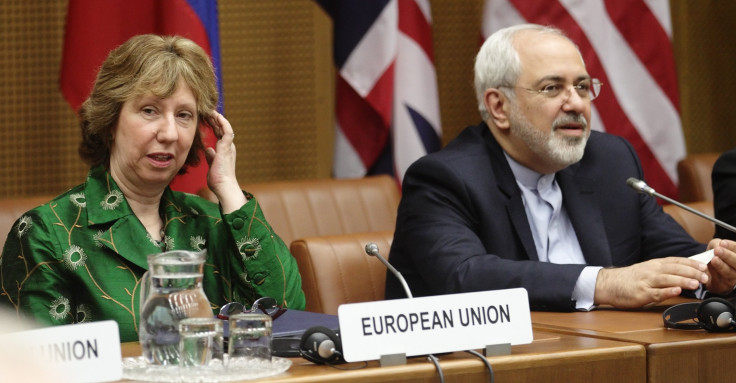Ukraine Crisis Or Not, A Deal On Iran’s Nuclear Program May Be Coming Soon

While the U.S. and Russia are engaging in a political battle in eastern Ukraine, they have been forced to come to the negotiating table on what experts say is a much larger issue: the possibility of a nuclear-armed Iran.
Leaders from six world powers and Iran are meeting this week in Vienna to kick off the final round of discussions regarding Iran’s nuclear capabilities. Representatives from the U.S., China, Russia, France, the UK and Germany will sit down for the first time in the negotiation process to begin drafting an agreement on Iran’s development of nuclear energy and the West’s concern about the possible development of nuclear weapons.
“The pace of the dialogue is set to intensify. This is really the make or break moment,” Suzanne Maloney, senior fellow at the Brookings Institution, said. “This is where the real horse trading begins.”
The six world powers, the so called P5+1, have so far only presented their ideas about how to approach an agreement on Iranian nuclear power. This week marks the first time the representatives will attempt to put their requests into writing. On Nov. 24, Iranian Minister Javad Zarif and the European Union’s foreign policy representative Catherine Ashton, leader of the P5+1 negotiating team, signed an agreement known as the Joint Plan of Action. The plan laid out specific steps for each side to take during a six-month period. It required that Iran pause developments in its nuclear program and roll back stockpiles of enriched uranium. It also required more extensive monitoring by the International Atomic Energy Agency. In return, Iran received some sanction relief.
As the talks begin this week, experts on the issue are split as to whether the crisis in Ukraine, which pits Russia against the U.S. and other Western nations, will have implications on the negotiations. So far, the negotiations have been relatively upbeat, with few signs that the P5+1 members would be anything other than united. Iran is looking to give up as little as possible in regard to its nuclear infrastructure. If discussions in Vienna were to break down this week, experts say it would be more difficult for the P5+1 to pressure Iran to scale back aspects of its nuclear program.
“The cooperation of the international community is the reason that we have been successful thus far at negotiating with Iran,” Kelsey Davenport, a nonproliferation analyst at the Arms Control Association, said.
While all of the P5+1 members have an incentive to cooperate in Vienna to avoid a nuclear Iran, Maloney said the political tensions caused by the degenerating situation in Ukraine could play out at the negotiating table this week.
“There are certainly many in Russia that have a zero sum reality with the West,” she said. “Moscow wants Iran to remain as divorced from the West as possible.”
At the same time, there is no incentive for Russia to prolong the negotiation, especially because it is itself in the process of negotiating an oil deal with Tehran.
“For the most part the Russians don’t benefit from taking steps that might scuttle a nuclear deal with Iran,” Maloney said. “(Russia) will be looking to protect its own interests especially economically.”
In the U.S., President Obama has been faced with hardliners in Congress, as well as Washington’s Israeli ally, who both want Iran to disband its uranium enrichment program entirely. But that’s not going to happen, Davenport said, and Congress hardliners are “unrealistic.”
“Obama is going into negotiations with a realistic expectation and understanding that Iran needs to maintain some of its nuclear program to sell the deal domestically,” she said.
© Copyright IBTimes 2024. All rights reserved.




















